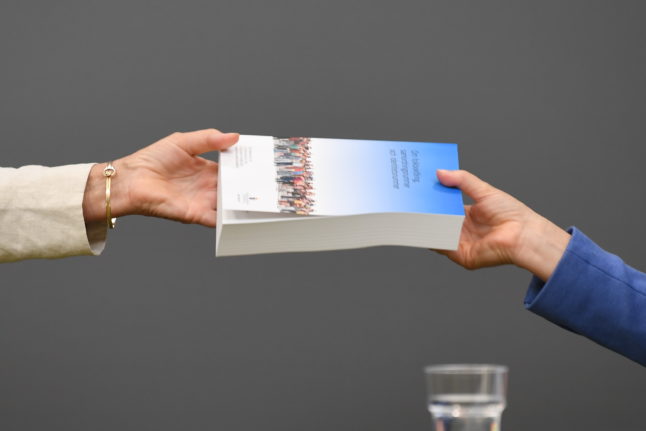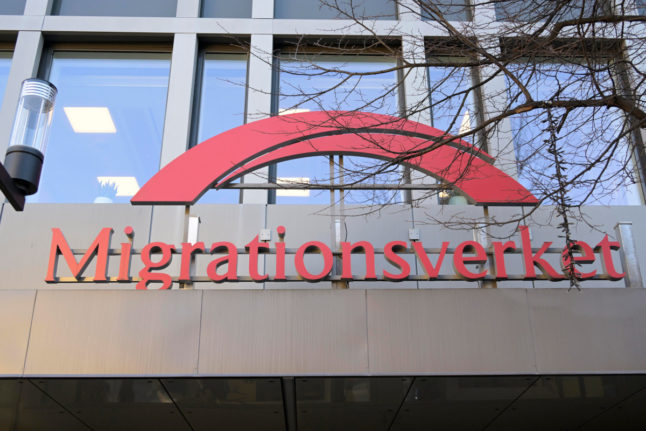When will parliament vote on the changes to coordination numbers?
Sweden’s parliament is due to vote on the new law on November 30th, following a debate in the chamber. The parliament’s Committee on Taxation discussed the final details of the changes on October 20th. The changes will then become law on September 1st, 2023, if the vote passes (which it likely will).
The bill was submitted by the former Social Democrat government in July and follows many of the recommendations of the government inquiry which reported its conclusions in July 2021.
What is a coordination number?
The “coordination number”, or samordningsnummer in Swedish, is a ten-digit code used to identify individuals who have any sort of contact with Swedish authorities.
People receive a coordination number if they are not eligible for a personnummer. A personnummer (‘personal number’ or social security number) is granted to people who can prove they will be living in Sweden for at least a year, such as long-term students or employees, and who can prove their identity.
Like personal numbers, coordination numbers are unique, are linked to the same person throughout their lifetime, and the first six digits are based on a person’s birthdate (although for a coordination number, 60 is added to the date of birth).
Coordination numbers are given out to people who work in Sweden, are seeking asylum in Sweden, live abroad but have a business registered in Sweden, are resident and job-hunting in Sweden, or are studying in Sweden for less than a year.
READ ALSO: What’s a Swedish ‘coordination number’ and why do I need one?
What are the biggest changes under the law?
- The Swedish Tax Agency will be wholly responsible for awarding coordination numbers. Under the current system, the numbers are also issued by Migration Agency (Migrationsverket), Swedish police, the Swedish Transport Agency (Transportstyrelsen), as well as some institutions of higher education.
- The Swedish Tax Agency will issue three different classes of coordination number, graded depending on what level of identity check has been carried out on the number’s holder.
- The top level, “supported identity” will be awarded to those who have been checked in person by one of the agency’s officials, been able to show a passport or identity card, and had their fingerprints scanned and their faces photographed.
- The lower levels of identity,” probable identity” and ”insecure identity” will grant access to some government services and allow the government to trace individuals but will not be strong enough to grant access to co-called “trust level 3” e-legitimisation services, such as BankID and Freja plus.
- Coordination numbers will be cancelled if they are not renewed by their holder within five years of being handed out.
- The Swedish Tax Agency will be empowered to check any biometric information stored in the applicant’s passport or identity card
- Applicants will be required to allow their fingerprints to be taken and their faces photographed
- Other agencies will be liable to report any mistakes in the registration of people with coordination numbers
What’s the big problem with coordination numbers?
The loose criteria for the numbers and the plethora of agencies that can award them has made the system extremely chaotic, with about 900,000 numbers currently active. When the tax agency in 2017 checked out 4,000 random coordination numbers, they found that in 45 percent of cases, the identity of the holder was unclear.
The Swedish tax agency at the start of this year declared 600,000 coordination numbers as “dormant”, and many are bought and sold online, with some then used to carry out welfare fraud.
For those living in Sweden who are only eligible for coordination numbers, such as Ukrainian refugees, many people working in Sweden or seeking asylum, the lower level of security can also be quite disabling.
A coordination number is not deemed a sufficiently secure proof of identity for the holder to access BankID of Freja Plus, meaning the holder is effectively barred from a huge range of government services, as well as a lot of online shopping, travel apps and other services.
How will the change help foreigners in Sweden?
The top “supported identity” tier should be enough to meet “trust level 3” in the system set up by Sweden’s digital regulator DIGG. This will mean that foreigners who come to Sweden and can support their identity will be able to access BankID and other digital services even if they are not eligible for a personal number.
However, a spokesperson for DIGG said that this could take time to implement.
“There are a number of initiatives ongoing, both on the national level in Sweden and on the EU level (such as the Single Digital Gateway – SDG regulation),” Pia Ohlén, a DIGG press officer told The Local.
“Combined, these initiatives should provide for a better situation for foreigners in Sweden, but it is difficult to give a timeline for the work, or to point at single measures that would quickly resolve the situation.”
What other plans does the government have?
In the Tidö Agreement, the common programme agreed by the three governing parties and the Sweden Democrats, they announced a plan to cancel all coordination numbers which cannot be “confirmed in a satisfactory way”.
The government is planning to combine this with a national census to make sure that the authorities are aware of everyone currently living in Sweden.
“In connection with the census, the government will consider recalling and cancelling any coordination numbers which are not confirmed in a satisfactory way by the holder,” the agreement reads.
In the government programme announced by Prime Minister Ulf Kristersson on October 18th, he declared that “a census will be carried out and all coordination numbers which cannot be confirmed will be recalled”.



 Please whitelist us to continue reading.
Please whitelist us to continue reading.
Member comments